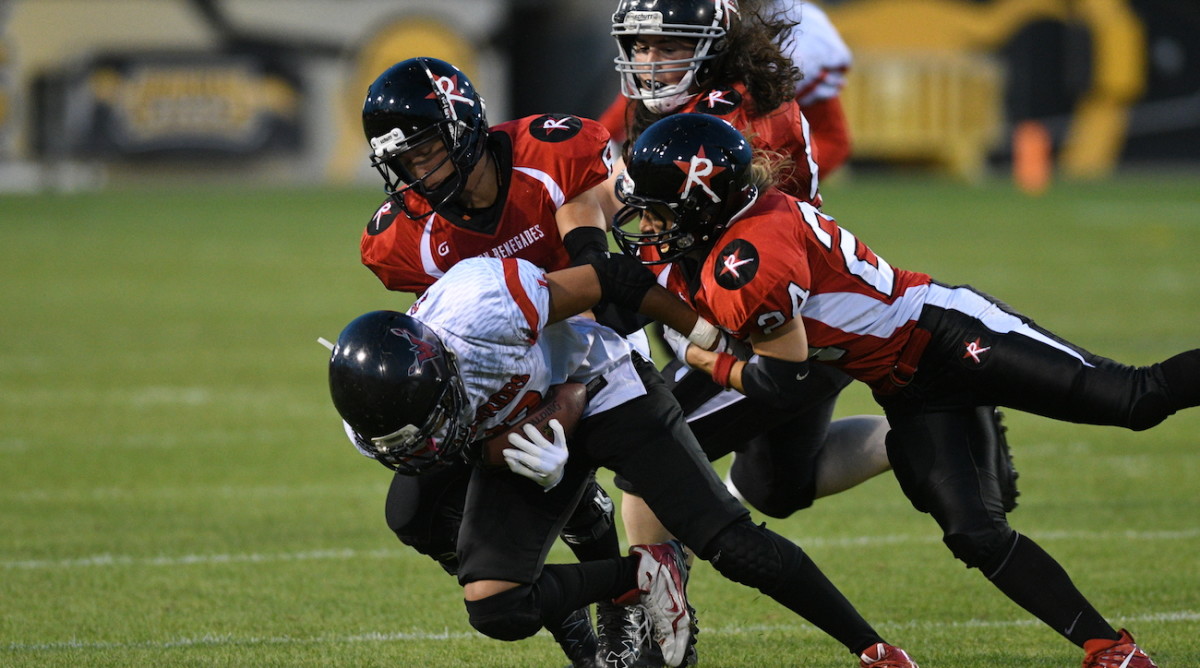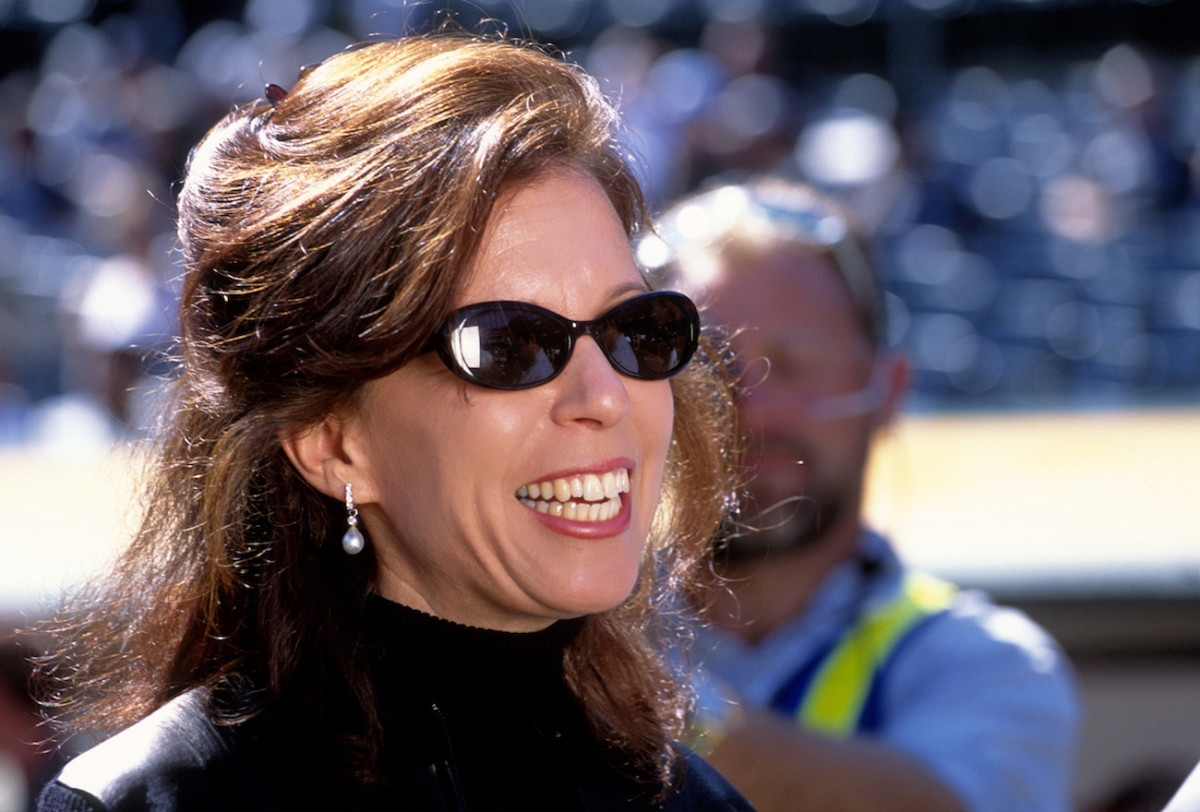These Trailblazers Prove Football's a Women's Game Too

When she was in junior high, Amy Trask fell for football. “I just loved the game,” she says. “It’s a game of matchups. Can my linebackers cover your running backs? Can my corners cover your receivers? How does my pass protection match up against your pass rush?”
That was in the 1970s. While attending law school in the ’80s, she interned for the Oakland Raiders and landed a full-time job in the team’s legal department in ’87. Ten years later, she was named CEO. She was the first female front-office executive in the NFL.
By the time she left the organization in 2013, a lot had changed for women who wanted to work in football. “What’s really changed is the on-field foothold, whether in the training room as an assistant trainer, or an assistant coach—maybe someone wants to be a scout,” says Trask, who is now an NFL analyst for CBS. “That’s where things have evolved more….When I started at the league and when I walked in to my first owners meeting, I was the only woman there. Other than those who were married to team owners, or were part of the family, I was the only woman there who wasn’t related to an owner. But over the course of the years, many more women joined the league.”
In 2015, the Arizona Cardinals hired Jennifer Welter as a coaching intern for training camp and the preseason; she was the first female position coach. Since then, four women have joined NFL coaching staffs, including Katie Sowers (above), a current offensive assistant with the San Francisco 49ers. “I’ve always known that I wanted to be a coach,” says Sowers.
Women are now seeing more opportunities to work in the world of football, and even have a professional league.

The WFA has teams in 32 states and Washington, D.C.
Lisa King is the commissioner of the Women’s Football Alliance, which is a competitive tackle football league for women. King founded the league in 2009 and has since seen tremendous progress for women in the world of football. The WFA has become the largest women’s tackle football league in the world. King, who wants to bring top athletes together, has always fought for women to have a chance to play football at a professional level.
“When I was growing up, women weren’t playing football,” she says. “Now, having the WFA, we are able to show girls that no matter what sport they want to play, there is an opportunity.”
Adds Sowers, “People always ask me if I think a woman will ever play in the NFL, and to me that’s not the goal. The goal is just like any other sport—we have separate leagues, and women’s football exists. I hope light is shed on that, and the societal norms start to change. It wasn’t too long ago that people thought women couldn’t run marathons, and I think that’s the way we will look back on football.”
The Women’s Football Alliance has served as a platform for many influential women in the world of football. Marirose Roach, the founder of FootballHers Inc., played for the Philadelphia Liberty Belles and was not only a team captain, but also the 2010 WFA MVP. Linda Bache was the owner and general manager of the Chicago Force from 2005 until ’17 and was the WFA Owner of the Year in ’13. Under Bache’s ownership, Elizabeth Okey played for the Chicago Force from ’09 to ’14 and played for a WFA championship in ’13. Okey was invited to be on the board of directors for USA Football.
Sowers played for the Kansas City Titans and won WFA American Conference Offensive MVP in 2014. She started her career in the NFL in ’16 when she became a scouting intern for the Atlanta Falcons, as well as a wide receivers coaching intern. Kyle Shanahan, a former Falcons offensive coordinator, brought Sowers to San Francisco in ’17 as a part of the Bill Walsh NFL Coaching Diversity Fellowship.
Sowers says that her gender has not hindered her in her pursuit of a job in coaching. “The happiness and excitement I felt when I first got the job was mainly just me being excited about finding the career path that I felt suited me,” she says. “Ever since I was little I knew that football was the sport for me. Being a woman, and being that leader of breaking barriers, that was an added bonus to me.”
Sowers loves her job. She feels she is treated the same as any other coach, and she can’t recall negative experiences with players. “I want to [help them] create the best possible versions of themselves, on the field and off the field,” she says of her goals for the players. “That’s what coaching really is. I have the opportunity to work with so many great professionals—because that’s what they are.”

Trask was CEO of the Raiders from 1997 through 2013.
Both Sowers and Trask believe that their impact on their players is crucial to being successful. “The women with whom I’ve spoken around the league, whether they are working in football areas, or in the business areas, have articulated the same thing: Players want to know that you’re a good teammate,” says Trask.
Over the years, women have begun to appear more frequently in higher positions, important roles, and on-field jobs. From the office, to the sideline, and to the field, women like Trask, Sowers, and King refuse to let anything get in the way of their passion for football and their careers.
Trask has considered her career to be not only a path for her, but for other women as well: “If some young woman looked at me and said, ‘Well, I can get into football too,’ that’s just terrific.”
Top photograph by Michael Zagaris/San Francisco 49ers/Getty Images
